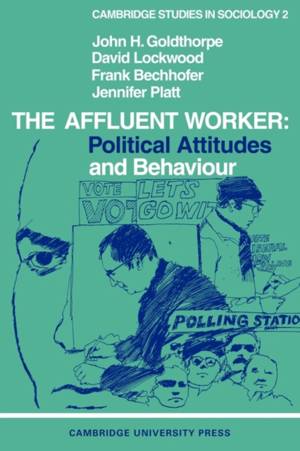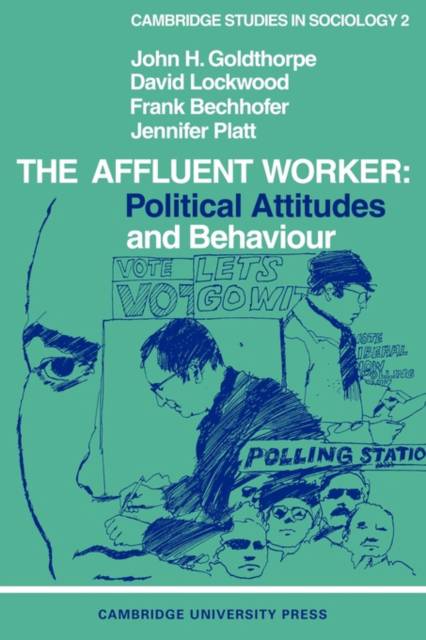
- Afhalen na 1 uur in een winkel met voorraad
- Gratis thuislevering in België vanaf € 30
- Ruim aanbod met 7 miljoen producten
- Afhalen na 1 uur in een winkel met voorraad
- Gratis thuislevering in België vanaf € 30
- Ruim aanbod met 7 miljoen producten
Zoeken
The Affluent Worker
Political Attitudes and Behaviour
John H Goldthorpe, David Lockwood, Frank Bechhofer
€ 40,45
+ 80 punten
Omschrijving
This 1968 volume, the second of The Affluent Worker monographs, reports on the voting and political attitudes of highly paid manual workers. As in the first book, the affluent workers studied are employed in Luton, a town which benefited faster and more consistently than almost any other in Britain from the economic progress of the 'fifties and early 'sixties. The sample was chosen as a 'critical' case to test some widely accepted views on the assimilation of the working classes into patterns of middle-class social life. On the basis of material from interviews, the authors give an account of the workers' political orientations, and this is followed by an analysis of voting in relationship to income house ownership, social origin and trade union membership. The main findings - that, despite their affluence, the majority of these workers remain staunch supporters of the Labour Party - runs counter to contemporary beliefs about working-class embourgeoisement.
Specificaties
Betrokkenen
- Auteur(s):
- Uitgeverij:
Inhoud
- Aantal bladzijden:
- 104
- Taal:
- Engels
- Reeks:
- Reeksnummer:
- nr. 2
Eigenschappen
- Productcode (EAN):
- 9780521095266
- Verschijningsdatum:
- 1/12/1968
- Uitvoering:
- Paperback
- Formaat:
- Trade paperback (VS)
- Afmetingen:
- 152 mm x 229 mm
- Gewicht:
- 163 g

Alleen bij Standaard Boekhandel
+ 80 punten op je klantenkaart van Standaard Boekhandel
Beoordelingen
We publiceren alleen reviews die voldoen aan de voorwaarden voor reviews. Bekijk onze voorwaarden voor reviews.











